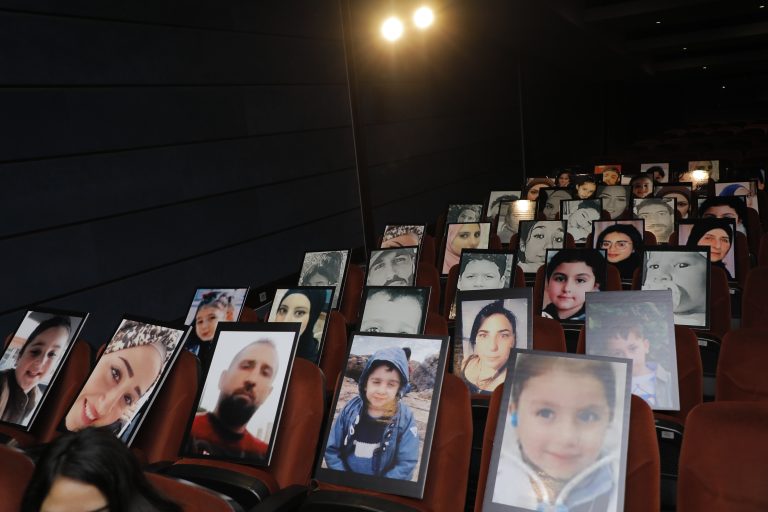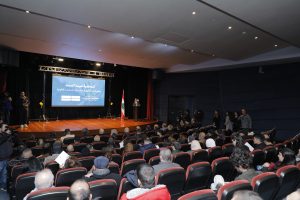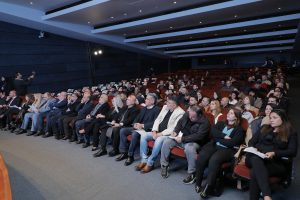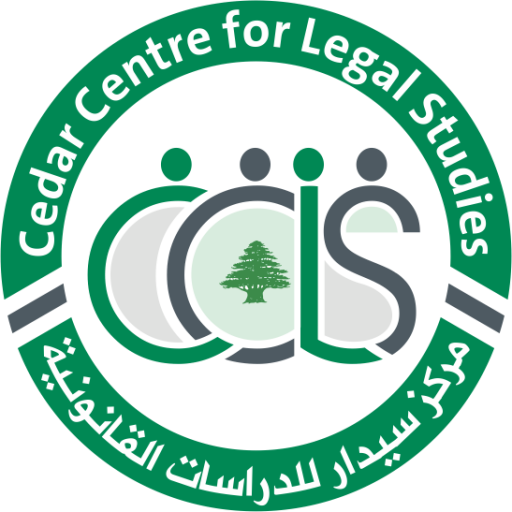Cedar Centre For Legal Studies
Activity
Event of 06 Feb 2024: CommemorAction for the Dead, Missing, and Forcefully Disappeared at Sea and the Borders
07/02/2025


Yesterday, on the Global Day that marks on 06 February, the Cedar Centre for Legal Studies (CCLS) in Tripoli organized an event together with relatives of the dead, missing and forcefully disappeared at Sea and at the Borders. This event, which was held in Safadi Cultural Centre, was organised as well with survivors of shipwrecks, researchers, activists and lawyers. The Global Day of CommemorAction is 6 February because 10 years ago, on 6 February 2014, several hundred people were attacked by the Spanish Guardia Civil with rubber bullets, police batons and tear gas during their attempt to swim from Morocco to the Spanish exclave Ceuta. This event is known as the Tarajal massacre. Due to the hostile and aggressive behaviour of Spanish and Moroccan forces, which tried to stop the people from entering EU grounds, at least 15 people died.
For the second CommemorAction in Tripoli we once more tried to create a room and a time in which the mechanisms and the lethal consequences of the border regimes can be voiced. Yesterday’s event was opened and conducted by Me Obaida Al-Samad, attorney and a member of the Legal Support Program at CCLS.
Saadeddine Shatila, executive director of CCLS and human rights activist, briefly outlined the vision and mission of the CCLS and highlighted the work in terms of advocacy and legal support during the April 2022 boat sinking case in the Lebanese territorial waters, and the arrest of migrants in Libya from a boat that departed from Lebanon in August 2023, and finally regarding the boat that has been missing since mid-December 2023 and which also set off from Lebanon. He also gave a brief overview of other programs that the Center is working on, such as documenting cases of enforced disappearance and torture, and giving courses about arbitration in cooperation with the Beirut Arab University and the LASER Association.
Dr Marie Kortam, a researcher in Social Sciences, and head of the Research and Policy Studies Program at CCLS, presented a profound input on a human rights approach to migration. Of the 100 boats which took off from the Lebanese border in 2023, CCLS was able to monitor 12 of them. Dr. Kortam furthermore highlighted the legal framework and some legal terms regarding the dichotomy of regular migration and the so-called irregular migration.
Anja Pilchowski, Master of Arts in International Social Work and activist with Alarm Phone, briefly outlined the main goals and functions of the distress hotline Alarm Phone, provided information material in Arabic and English, and let the survivors and relatives know that they are not alone in their grief and anger caused by the border regimes- Alarm Phone is with them.

Me Diala Chehade, who is an attorney, human rights advocate and International Criminal Law expert, reported on the failure of Lebanon’s Judiciary regarding the survivors of the April 23, 2022 Boat Sinking. Me Chehade presented a well-founded chronology of the events regarding the legal process- taking the possibilities for relatives to receive legal justice.
Me Mohamad Sablouh, attorney, board member and director of the CCLS’s legal support programme, went into details about the manifold legal violations regarding the shipwreck of April 2022. Me Sablouh shed a particular light on the questionable role of the NGO AusRelief, which had promised to investigate, photograph and salvage the sunken boat. AusRelief also dashed the hopes of the relatives that the human remains of the victims could be handed over to them and that the investigation of the boat would help to uncover the truth about the incident.
Dr Stefanos Levidis, independent researcher and expert on border natures, prepared a video for the event that reiterated the need for a thorough investigation into the April 2022 shipwreck and led into the subsequent video of the collaborative 3D reconstruction of the incident.
The 30-minute video portrayed the investigation, which was carried out by the regional institution Febrayer Network that seeks to support journalistic and knowledge production in the Arab region, the independent media platform Megaphone and CCLS regarding the shipwreck of April 2022. It showed the data collection process and ultimately constructed the possible scenario of how the boat sank. The video is also available under the title: “The death boat: Drowning migrants in their sea” on YouTube, uploaded by Megaphone.
Diaa Al-Rumaihi, a relative of a victim of the border regime, raised the complaint that it is particularly brutal that they were showered with promises by responsible authorities. However, these promises were never honoured, that is why they continue to demand truth and justice. And Ghazi Qaddour, a minor, shared powerfully that he should already be dead. As a survivor who has lost many family members due to the border regime, he asked for any support to be able to leave Lebanon.
The formal part of the event was concluded by Me Tharwat Eid, an attorney and a member of the Legal Support Program at CCLS, by presenting the joint statement with the requests to the Lebanese authorities and international community. This joint statement was initiated by CCLS and co-signed by Access Center for Human Rights (ACHR), Alarm Phone, Caesar Files for Justice (CF4J), Centre for Defending Civil Rights and Liberties, MENA Rights Group, NoPhotoZone, Anti-Racism Movement (ARM) Lebanon, The Lebanese Center for Human Rights (CLDH), The Palestinian Association for Human Rights (Witness), Palestinian Human Rights Organization (PHRO). The joint statement was published separately already yesterday.
For any inquiry, please write to us at info@ccls-lebanon.org
